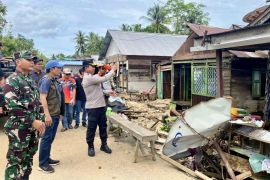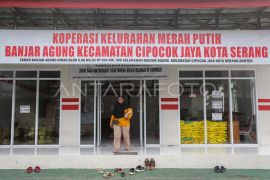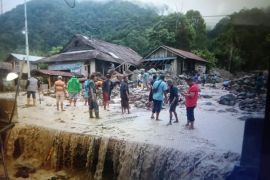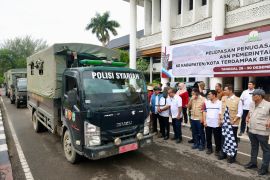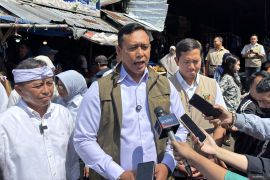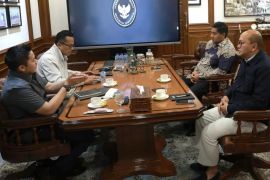In the deadliest, at least eight people were killed and 30 wounded when a bomb in a parked taxi exploded at the entrance of a Baghdad market in the mainly Shi`ite Muslim district of Washash, police said.
"There were bodies scattered everywhere. Glass and vegetables covered the whole place," said police officer Ahmed Nouri, who was on patrol nearby when the bomb detonated.
"I feel like my clothes are completely covered in blood and the smell of it is in my nose," he said.
Most of the victims were vendors setting up their produce in the early hours before shoppers arrived, he said.
"In some places you cannot tell the blood from the (pulverised) vegetables," he said.
Violence in Iraq has fallen since a peak in 2006-07 following the 2003 U.S. invasion but insurgents remain capable of lethal attacks. More than 150 people have been killed in June across the country in a rise in attacks targeting mainly Shi`ite pilgrims and shrines.
Iraq`s Shi`ite, Sunni and Kurdish factions have been locked in political disputes since the last U.S. troops withdrew in December, aggravating existing tensions.
A separate car bomb attack in Taji, a town 20 km (12 miles) north of the capital, killed four and wounded 20 early on Thursday, police said. The bomb in the mainly Sunni town was targeting a government building, which was severely damaged.
Another bomb on a roadside targeting a police patrol killed one and wounded five in Abu Dsheer, a Shi`ite area in southern Baghdad, police said.
While most recent attacks have centred around the capital, bombers also struck Fallujah, 50 km (32 miles) west of Baghdad on Thursday.
A suicide bomber killed two police officers and wounded four others after an attack targeting a government compound, police said. They also reported that three more police officers had suffered injuries in a separate attack to the south of the city when a bomb in a parked car blew up.
Prime Minister Nuri al-Maliki said on Wednesday he will call for early elections if other political parties refuse to negotiate to end a crisis over power-sharing that threatens to stoke sectarian tensions even more. (*)
Editor: Kunto Wibisono
Copyright © ANTARA 2012


